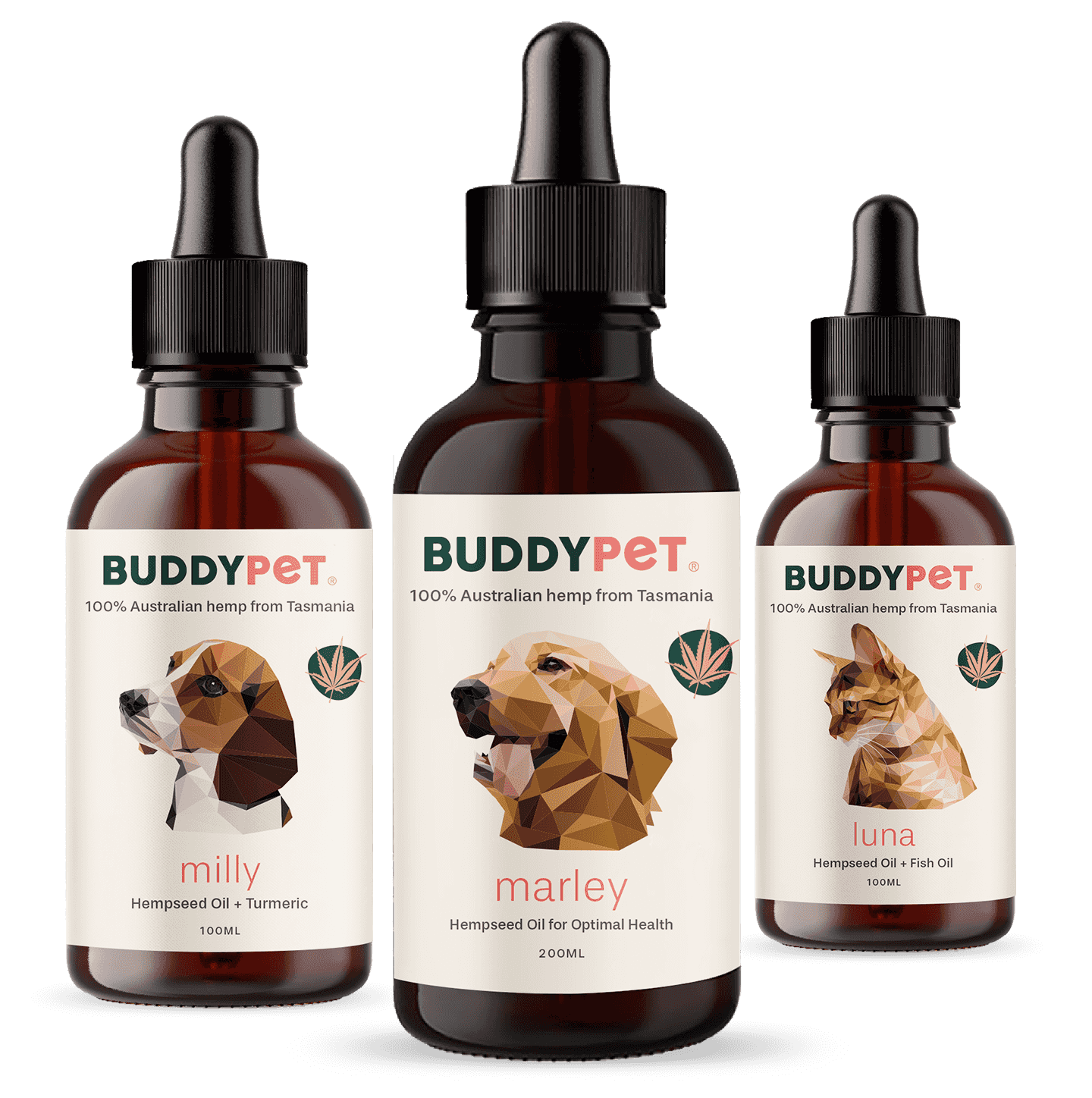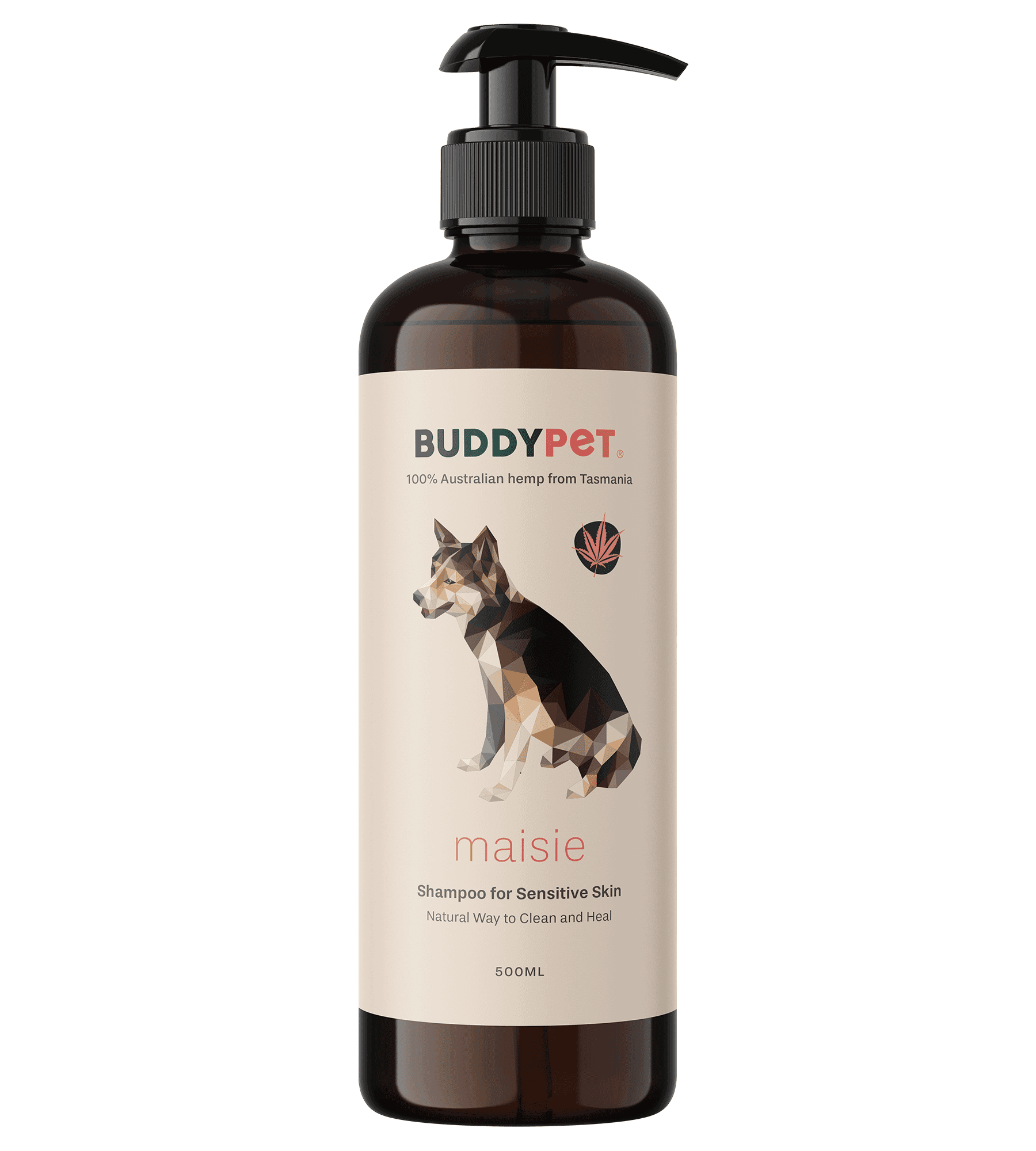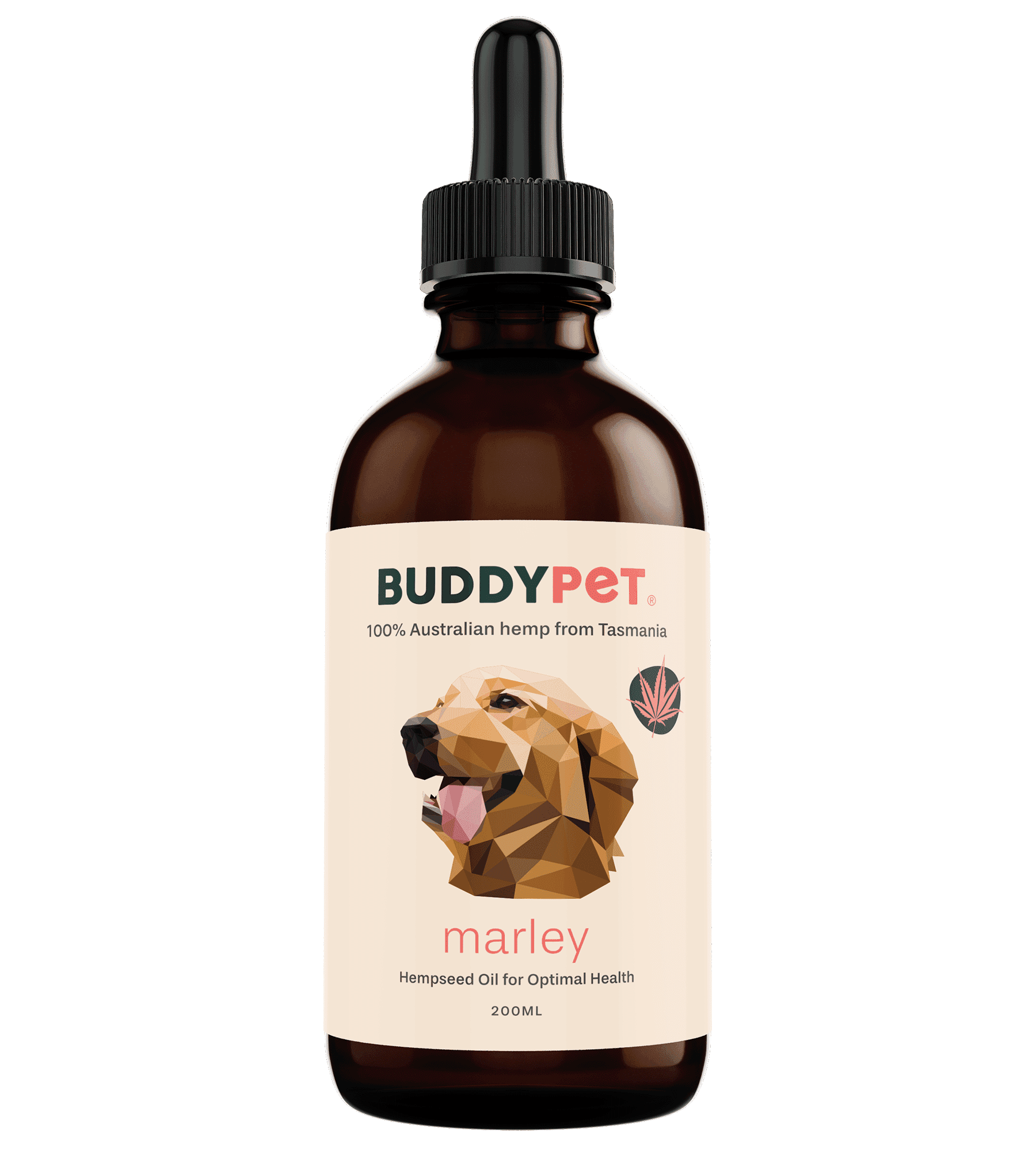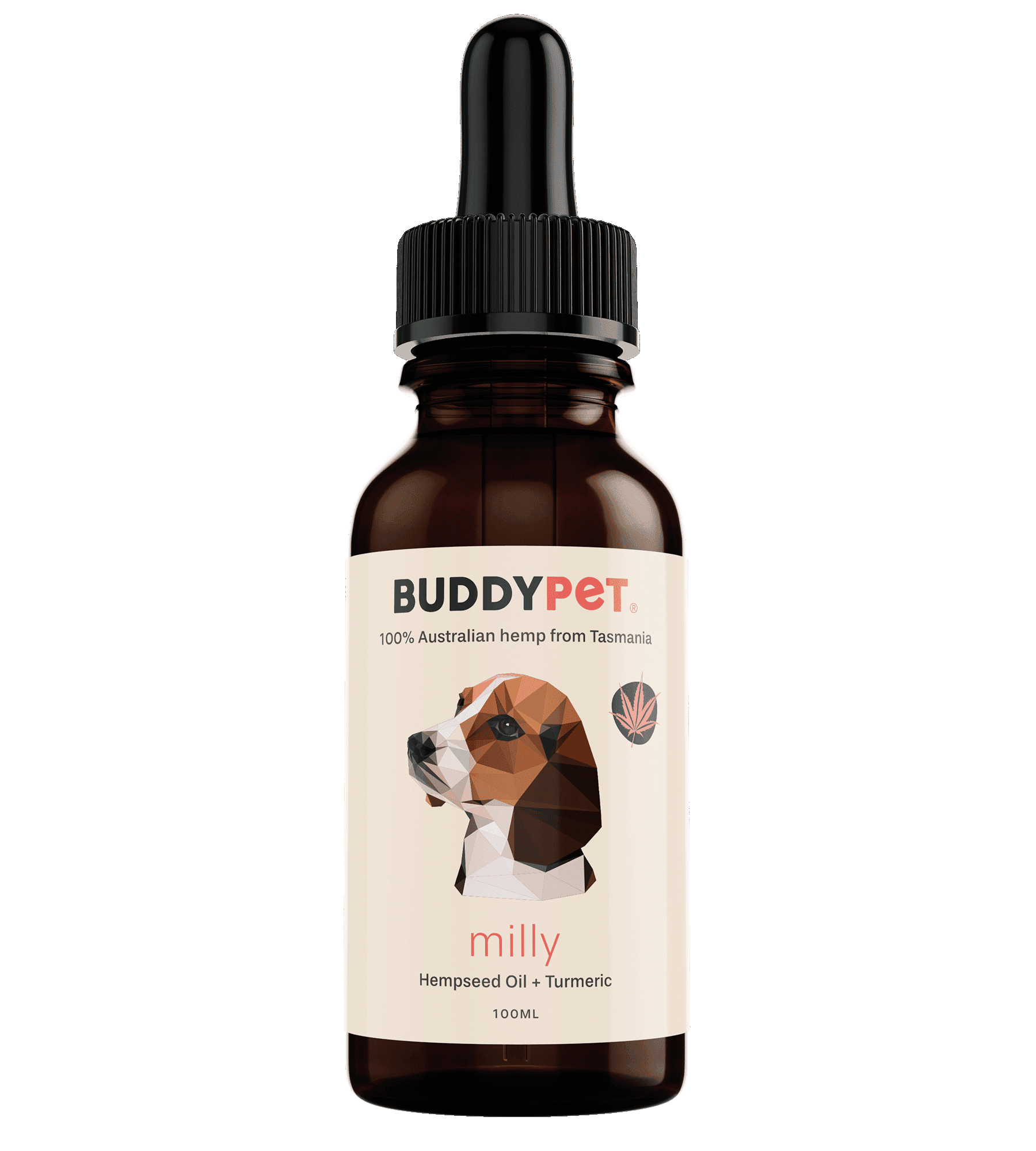As our cats age, they enter a new phase of life that requires special attention and care. Senior cats, typically those over 11 years old, face unique challenges that can impact their quality of life.
In this comprehensive guide, we'll explore the world of senior cat care, discussing common health issues, preventive measures, and natural supplements that can help your aging kitty thrive.
Understanding Your Senior Cat:
Just like humans, cats experience various changes as they age. Recognizing these changes is crucial for providing the best care possible. Some signs that your cat is entering their senior years include:
- Reduced activity levels
- Changes in sleep patterns
- Decreased grooming habits
- Weight loss or gain
- Altered appetite
- Increased vocalization
- Confusion or disorientation
Common Health Issues in Senior Cats:

As cats age, they become more susceptible to certain health problems. Being aware of these issues can help you catch them early and provide appropriate care. Some common health concerns for senior cats include:
- Arthritis and joint pain
- Kidney disease
- Dental problems
- Thyroid disorders
- Diabetes
- Cognitive dysfunction
- Heart disease
- Cancer
Let's explore some of these issues in more detail:
Arthritis and Joint Pain:
Many senior cats suffer from arthritis, which can cause pain and reduced mobility. Signs of arthritis include difficulty jumping, limping, and reluctance to move.
Kidney Disease:

Chronic kidney disease is a common problem in older cats. Symptoms may include increased thirst, frequent urination, weight loss, and decreased appetite.
Dental Problems:
Dental issues can cause pain and affect your cat's ability to eat. Regular dental check-ups and cleanings are essential for senior cats.
Thyroid Disorders:
Hyperthyroidism is common in older cats and can lead to weight loss, increased appetite, and hyperactivity.
When Does a Cat Become a Senior?
Understanding when a cat enters their senior years is crucial for providing appropriate care. While there's no exact age at which all cats become seniors, veterinarians generally consider cats to be in their senior phase around the following ages:
- 7-10 years: Early senior years
- 11-14 years: Senior years
- 15+ years: Geriatric
It's important to note that these are general guidelines, and individual cats may age at different rates. Factors such as breed, genetics, nutrition, and overall health can influence how quickly a cat ages.
Indoor cats typically live longer than outdoor cats due to reduced exposure to dangers and environmental stressors. Some breeds, like Siamese cats, tend to have longer lifespans and may not be considered seniors until later in life.
Why Are Senior Cats More Prone to Diseases and Cancer?

As cats age, they become more susceptible to various health issues, including chronic diseases and cancer. There are several reasons for this increased vulnerability:
1. Weakened Immune System:
As cats age, their immune system becomes less efficient at fighting off infections and abnormal cell growth. This weakened immunity makes them more susceptible to various diseases and allows cancer cells to proliferate more easily.
2. Cellular Damage:
Over time, cells in a cat's body accumulate damage from environmental factors, oxidative stress, and natural wear and tear. This cellular damage can lead to mutations that may result in cancer or contribute to the development of other diseases.
3. Decreased Organ Function:
Aging affects the efficiency of various organs, including the liver, kidneys, and heart. As these organs become less efficient, they may struggle to filter toxins or maintain proper bodily functions, leading to an increased risk of disease.
4. Hormonal Changes:
Hormonal imbalances that occur with age can contribute to the development of certain diseases, such as hyperthyroidism, which is common in older cats.
5. Chronic Inflammation:
Many senior cats experience chronic low-grade inflammation, which can contribute to the development of various diseases and potentially promote cancer growth.
6. DNA Damage:
As cats age, their DNA repair mechanisms become less effective, leading to an accumulation of genetic mutations. These mutations can increase the risk of cancer and other age-related diseases.
7. Reduced Ability to Handle Stress:
Older cats may have a harder time coping with environmental stressors, which can weaken their overall health and make them more susceptible to illness.
8. Cumulative Effect of Environmental Factors:
Throughout their lives, cats are exposed to various environmental factors, including pollutants, toxins, and radiation. The cumulative effect of these exposures over time can increase the risk of disease and cancer in senior years.
9. Reduced Physical Activity:
As cats become less active in their senior years, they may experience muscle loss, decreased circulation, and weight gain, all of which can contribute to health issues.
10. Nutritional Challenges:
Senior cats may have difficulty absorbing nutrients efficiently, leading to deficiencies that can impact their overall health and disease resistance.
Understanding these factors underscores the importance of proactive care for senior cats. Regular veterinary check-ups, appropriate nutrition, and early intervention can help mitigate some of these risks and improve the quality of life for aging felines.
Preventive Measures for Senior Cat Health:
Given the increased susceptibility to diseases and cancer, it's crucial to take preventive measures to support your senior cat's health:
1. Regular Health Screenings:
Schedule bi-annual veterinary check-ups that include blood work, urinalysis, and physical examinations to catch potential issues early.
2. Tailored Nutrition:
Work with your veterinarian to choose a diet that meets your senior cat's specific nutritional needs, which may include added antioxidants and omega-3 fatty acids to support overall health.
3. Dental Care:
Maintain good oral hygiene through regular teeth brushing and professional cleanings to prevent dental diseases that can impact overall health.
4. Weight Management:
Keep your senior cat at a healthy weight to reduce stress on joints and organs and decrease the risk of obesity-related diseases.
5. Mental and Physical Stimulation:
Engage your cat in gentle play and provide environmental enrichment to keep them mentally and physically active.
6. Stress Reduction:
Create a calm, comfortable environment for your senior cat to minimize stress that could impact their immune system.
7. Supplements:
Consider adding supplements like fish oil (such as Luna) or other vet-recommended products to support joint health, cognitive function, and overall well-being.
The Power of Hemp for Pets:

In recent years, hemp has gained popularity as a natural supplement for pets, including senior cats. Hemp, derived from the Cannabis sativa plant, is rich in beneficial compounds called cannabinoids. Unlike marijuana, hemp contains only trace amounts of THC (the psychoactive component) and is safe for pets when used properly.
Benefits of Hemp for Senior Cats:
- Pain relief:Hemp may help alleviate chronic pain associated with arthritis and other inflammatory conditions.
- Anxiety reduction: Some senior cats experience increased anxiety, and hemp can have a calming effect.
- Improved appetite:Hemp may stimulate appetite in cats experiencing decreased food intake due to age-related issues.
- Better sleep: Hemp can promote more restful sleep, which is crucial for senior cats' overall health.
- Cognitive support: Some studies suggest that hemp may help support brain health in aging animals.
- Anti-inflammatory properties:Hemp's natural anti-inflammatory effects can benefit cats with various age-related conditions.
Introducing Luna: Fish Oil for Health Support in Senior Cats
While hemp offers numerous benefits, another powerful supplement for senior cats is fish oil. BUDDYPET Luna is a specially formulated blend of fish oil and hemp seed oil designed to support your senior cat's health and well-being.
Key Features of Luna:
- Powerful blend: Combines the anti-inflammatory properties of fish oil with the antioxidant benefits of hemp seed oil.
- High DHA and EPA content: These omega-3 fatty acids are crucial for senior cat health.
- Anti-inflammatory effects: Particularly beneficial for cats with chronic diseases like osteoarthritis and kidney disease.
- Easy administration: Can be added directly to your cat's food.
- Gradual introduction: Start with one drop per day, increasing to three drops over ten days.
Health Benefits of Luna:
- Supports overall well-being by fighting chronic inflammation caused by oxidative stress.
- Assists in relieving pain in damaged, inflamed arthritic joints.
- Helps reduce gut inflammation, supporting and improving overall immune function.
- May slow the progression of kidney disease through the anti-inflammatory action of fatty acids and antioxidants.
How to Use Luna:
BUDDYPET Luna is safe and should be administered according to your cat's size. Add it directly to your cat's food once a day, starting with one drop and gradually increasing to three drops over ten days.
Ingredients: Fish Oil, Hemp Seed Oil
Combining Natural Supplements with Veterinary Care:
While natural supplements like hemp and fish oil can be beneficial for senior cats, it's essential to use them in conjunction with proper veterinary care. Always consult your veterinarian before starting any new supplement regimen, especially if your cat has existing health conditions or is taking medications.
Interesting Facts About Senior Cats:

- Cats are considered "senior" at around 11 years old, but many cats live well into their late teens or early twenties.
- The oldest recorded cat lived to be 38 years old!
- Senior cats often become more affectionate and seek more attention from their owners.
- Contrary to popular belief, cats don't always sleep more as they age - changes in sleep patterns can actually be a sign of health issues.
- Some cats' eyes may develop a cloudy appearance as they age, but this doesn't necessarily mean they have cataracts.
FAQs About Senior Cat Care:
Q: How often should I take my senior cat to the vet?
A: It's recommended to take senior cats for check-ups every six months, as health issues can develop quickly in older cats.
Q: Can I give my senior cat kitten food for extra calories?
A: While kitten food is higher in calories, it's not nutritionally balanced for senior cats. Consult your vet for appropriate high-calorie options if needed.
Q: Is it normal for my senior cat to drink more water?
A: Increased thirst can be normal in older cats, but it can also be a sign of health issues like kidney disease or diabetes. Monitor your cat's water intake and consult your vet if you're concerned.
Q: Should I still play with my senior cat?
A: Absolutely! Gentle play sessions can help keep your senior cat mentally and physically active. Just be mindful of their energy levels and any physical limitations.
Q: Can senior cats still learn new things?
A: Yes! While it might take a bit longer, senior cats can still learn new behaviors and even tricks. Mental stimulation is important for their cognitive health.
Conclusion:
Caring for a senior cat requires patience, attention, and a proactive approach to health and wellness. By understanding the unique needs of aging felines, you can help your furry companion enjoy their golden years to the fullest. Regular veterinary check-ups, a balanced diet, and appropriate environmental modifications are key to supporting your senior cat's health.
Natural supplements like hemp and fish oil products such as Luna can play a valuable role in managing age-related issues and promoting overall well-being. These supplements, when used responsibly and under veterinary guidance, can help address common concerns like inflammation, joint pain, and cognitive function.
Every cat ages differently, and what works for one may not work for another. Pay close attention to your senior cat's behavior and health, and don't hesitate to consult with your veterinarian about any concerns. With the right care, love, and support, your senior cat can continue to be a happy, comfortable, and cherished member of your family for years to come.
Staying informed, attentive, and proactive in your senior cat's care, you're giving them the best chance at a high quality of life in their later years. Embrace this special time with your feline friend, and cherish the deep bond you've developed over the years. After all, a senior cat's love and companionship are truly priceless gifts that only get better with age.





